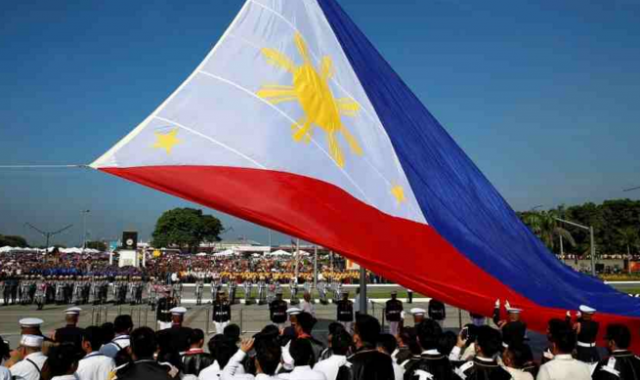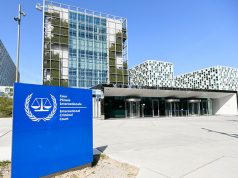MANILA, Philippines — The Philippines is the “biggest mover” in the World Justice Project (WJP)’s Rule of Law Index 2017-2018, released on Wednesday, which measures 113 countries’ adherence to the rule of law.
Since the WJP Rule of Law Index in October 2016, the Philippines dropped 18 positions to rank 88th out of 113 countries.
It ranks 13th out of 15 countries in East Asia and the Pacific, which includes its Southeast Asian neighbors as well as New Zealand, Australia, Japan, Hong Kong, the Republic of Korea, Mongolia, and China.
Nonprofit organization WJP calls itself “an independent, multidisciplinary organization working to advance the rule of law worldwide.”
To get the results, it conducted over 110,000 household and 3,000 expert surveys. It looked at the countries’ performance across eight factors:
— Constraints on government powers (these are effectively limited by the legislature, by the judiciary, and by independent auditing and review; government officials are sanctioned for misconduct; government powers are subject to non-governmental checks; and transition of power is subject to the law)
–Absence of corruption (government officials in the executive branch, judicial branch, legislative branch, police, and military do not use public office for private gain)
–Open government (laws and government data are publicized; there is right to information; there is civic participation; and there are complaint mechanisms)
–Fundamental rights (there are equal treatment and absence of discrimination; the right to life and security of the person is effectively guaranteed; there are due process of the law and rights of the accused; and freedom of opinion and expression, freedom of belief and religion, freedom from arbitrary interference with privacy, freedom of assembly and association, and fundamental labor rights are effectively guaranteed)
–Order and security (crime is effectively controlled; civil conflict is effectively limited; and people do not resort to violence to redress personal grievances)
— Regulatory enforcement (government regulations are effectively enforced and are applied and enforced without improper influence; administrative proceedings are conducted without unreasonable delay; due process is respected in administrative proceedings; and the government does not expropriate without lawful process and adequate compensation)
— Civil justice (people can access and afford civil justice; civil justice is free of discrimination, corruption, and improper government influence; civil justice is not subject to unreasonable delay; civil justice is effectively enforced; and alternative dispute resolution mechanisms are accessible, impartial, and effective)
— criminal justice (criminal investigation system is effective; criminal adjudication system is timely and effective; correctional system is effective in reducing criminal behavior; criminal justice system is impartial, free of corruption, and free of improper government influence; and there are due process of the law and rights of the accused)
For the Philippines, there was a “statistically significant decline” in the following factors, according to WJP: constraints on government powers; fundamental rights; order and security; and criminal justice.
There was no “statistically significant improvement” in any of the eight factors, the WJP said.
According to WJP’s press release, the top three overall performers in the 2017-2018 WJP Rule of Law Index were Denmark (1), Norway (2), and Finland (3).
The bottom three were Afghanistan (111), Cambodia (112), and Venezuela (113).
These top and bottom performing countries have not changed since the 2016 Index, it added.
“We are witnessing a global deterioration in fundamental aspects of the rule of law,” said WJP founder and CEO William H. Neukom in a press release. “Reduced adherence to the rule of law anywhere threatens development everywhere.”
In another press release, he said “effective rule of law is the foundation for communities of equity, opportunity, and peace” and “no country has achieved a perfect realization of the rule of law.”
The WJP Rule of Law Index is intended to be a first step in setting benchmarks, informing reforms, stimulating programs, and deepening appreciation and understanding for the foundational importance of the rule of law.”
Read the full report here.









